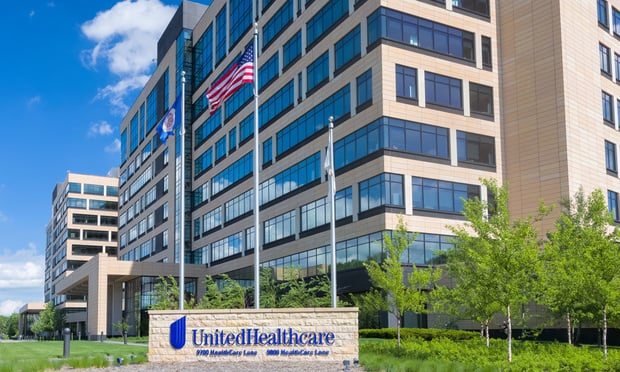The U.S. health care system is full of things thatdon't make much sense. A lot of them are extremelyprofitable.
|One of these, recently highlighted by legendary short-seller JimChanos, is dialysis, a market largely split in the U.S.between two large firms, DaVita Inc. and FreseniusMedical Care AG & Co KGaA. If the Senate passes a healthcare bill similar to one the House of Representatives passed lastmonth, then it may become easier for private insurance plans tostop covering dialysis, cutting off a big source of profit forthese companies.
|This is just one of the more extreme risks, of many, loomingover health care companies these days. And yetshares of the two biggest dialysis firms have outpaced thebroader stock market since the election, and the rest of healthcare is keeping up.
|Dialysis is a costly procedure that is mostly paid for bygovernment programs -- people with end-stage kidney disease becomeeligible for Medicare, regardless of age. Trouble is, thoseprograms reimburse dialysis companies at a significantly lower ratethan private insurers. According to a Bloomberg Intelligenceanalysis, DaVita made 95 percent of its Ebitda from patients withprivate insurance from 2013 to 2016. The profit margin for thesepatients is 77 percent, versus 2 percent for governmentpatients.
|Though eligible for Medicare, some dialysis patients preferprivate insurance because it can be more flexible. The AffordableCare Act made that insurance easier to get. It requires insurers tocover such patients, says insurers can't charge those patientsmore, caps out-of-pocket expenses and helps less-wealthy patientscover premiums.
|The Republican replacement for the ACA, the American Health Care Act, seems designed to bea pain for dialysis firms. The law may let states apply for waiversof the regulations that have made private insurance moreattainable. If given the opportunity, insurers would likelymake plans covering dialysis patients prohibitively expensive, tohelp keep such people out of their risk pool.
|Dialysis companies have already been curtailed in their abilityto nudge patients toward commercial insurance by fundingthird-party charities that help pay for it. The AHCA has thepotential to enhance their woes by pricing patients out of theprivate insurance market, charity or no.
|Not every part of the health care sector is quite as exposed tothe AHCA as dialysis is. But most companies have similar risks, forwhich stock prices have failed to fully account.
|Drugmakers, for example, also spend significant amounts of moneyfunding charities that help cover out-of-pocket drug costs forpatients on expensive medicines. Those costs are expected to risesubstantially if the ACA is repealed, hitting revenue andincreasing the political and public pressure over high drug prices.
|A Kaiser Family Foundation analysis found that 75 percentof individual insurance plans in the pre-ACA era didn't covermaternity care, 45 percent didn't include substance-abuse services,38 percent didn't include mental and behavioral health services,and 17 percent had prescription-drug restrictions. The ACA broughtthose percentages down significantly.
|Under the AHCA, the individual insurance market is likely tohead back to those bad old days in some states, pricing people outof comprehensive coverage -- and hurting companies that providethese services and products.
|That will have widespread and unpredictable knock-on effectsthroughout health care. People who don't get mental health carealso don't get prescribed medication, and so on.
|This is not a small-scale or narrowly concentrated problem.Twenty-three million people are expected to lose health coverageoutright under the AHCA, according to the Congressional BudgetOffice. An unknown number will have substantially skimpier coverageor higher out-of-pocket costs that may dissuade them from gettingcare. Millions of Americans with employer-sponsored coverage mayonce again face annual and lifetime coverage limits.
|Yet health care stocks in the Russell 3000 index of the largestU.S. companies are outperforming the index as a whole since theelection. A few stocks with ACA exposure are down since theelection, but many more are up.
|It's become increasingly clear health care investors can't relyon the Senate to save them. The Senate has gone from publiclydecrying the House bill to reportedly working on something thatcopies it in many respects. There's not all that much room tosoften the House bill, anyway, despite President Donald Trumpapparently having come to believe the House bill is"mean." The revised bill is being designed in secrecy andhastened to a vote (again) for a reason.
|The consequences aren't always as obvious as they are fordialysis firms. But they're there, and health care investors appearto be in some denial about it.
|Peter Grauer, the chairman of Bloomberg LP, the parentcompany of Bloomberg News, is a member of DaVita’s board.
|This column does not necessarily reflect the opinion ofBloomberg LP and its owners.
|Copyright 2018 Bloomberg. All rightsreserved. This material may not be published, broadcast, rewritten,or redistributed.
Complete your profile to continue reading and get FREE access to BenefitsPRO, part of your ALM digital membership.
Your access to unlimited BenefitsPRO content isn’t changing.
Once you are an ALM digital member, you’ll receive:
- Critical BenefitsPRO information including cutting edge post-reform success strategies, access to educational webcasts and videos, resources from industry leaders, and informative Newsletters.
- Exclusive discounts on ALM, BenefitsPRO magazine and BenefitsPRO.com events
- Access to other award-winning ALM websites including ThinkAdvisor.com and Law.com
Already have an account? Sign In
© 2024 ALM Global, LLC, All Rights Reserved. Request academic re-use from www.copyright.com. All other uses, submit a request to [email protected]. For more information visit Asset & Logo Licensing.








